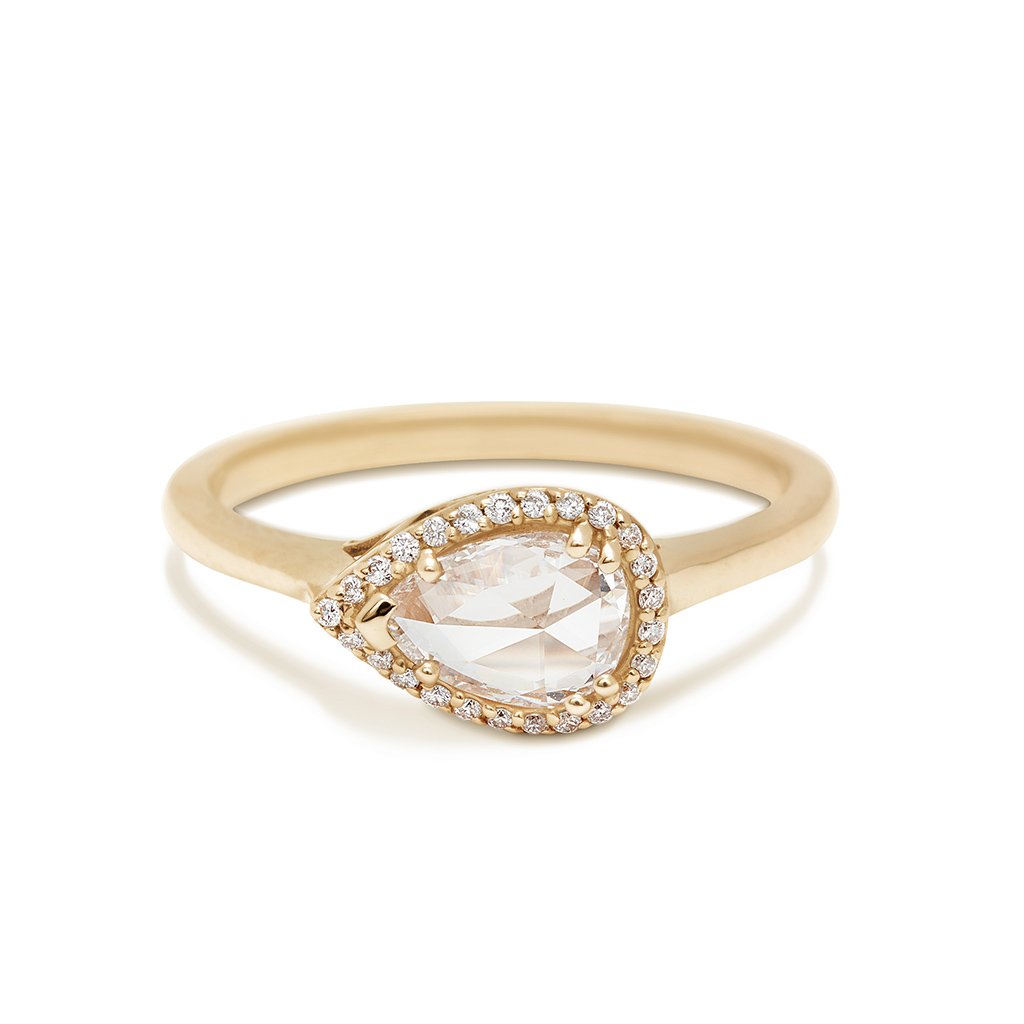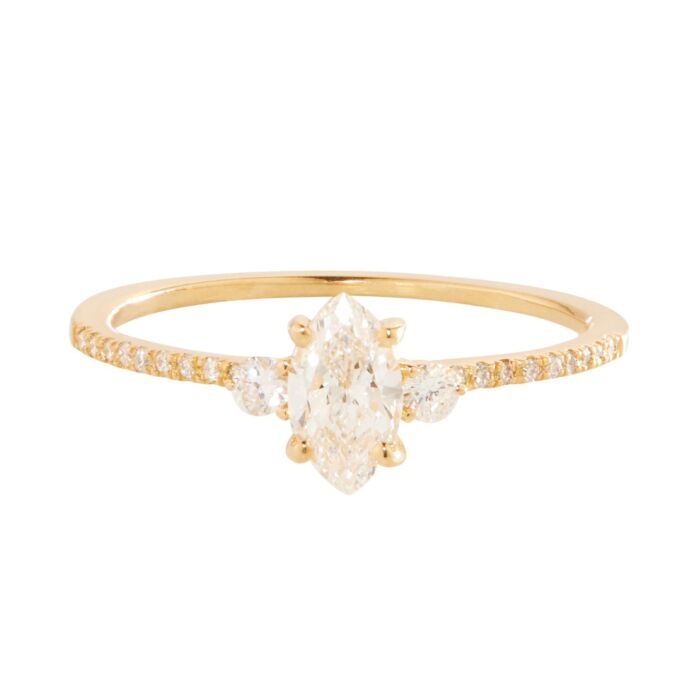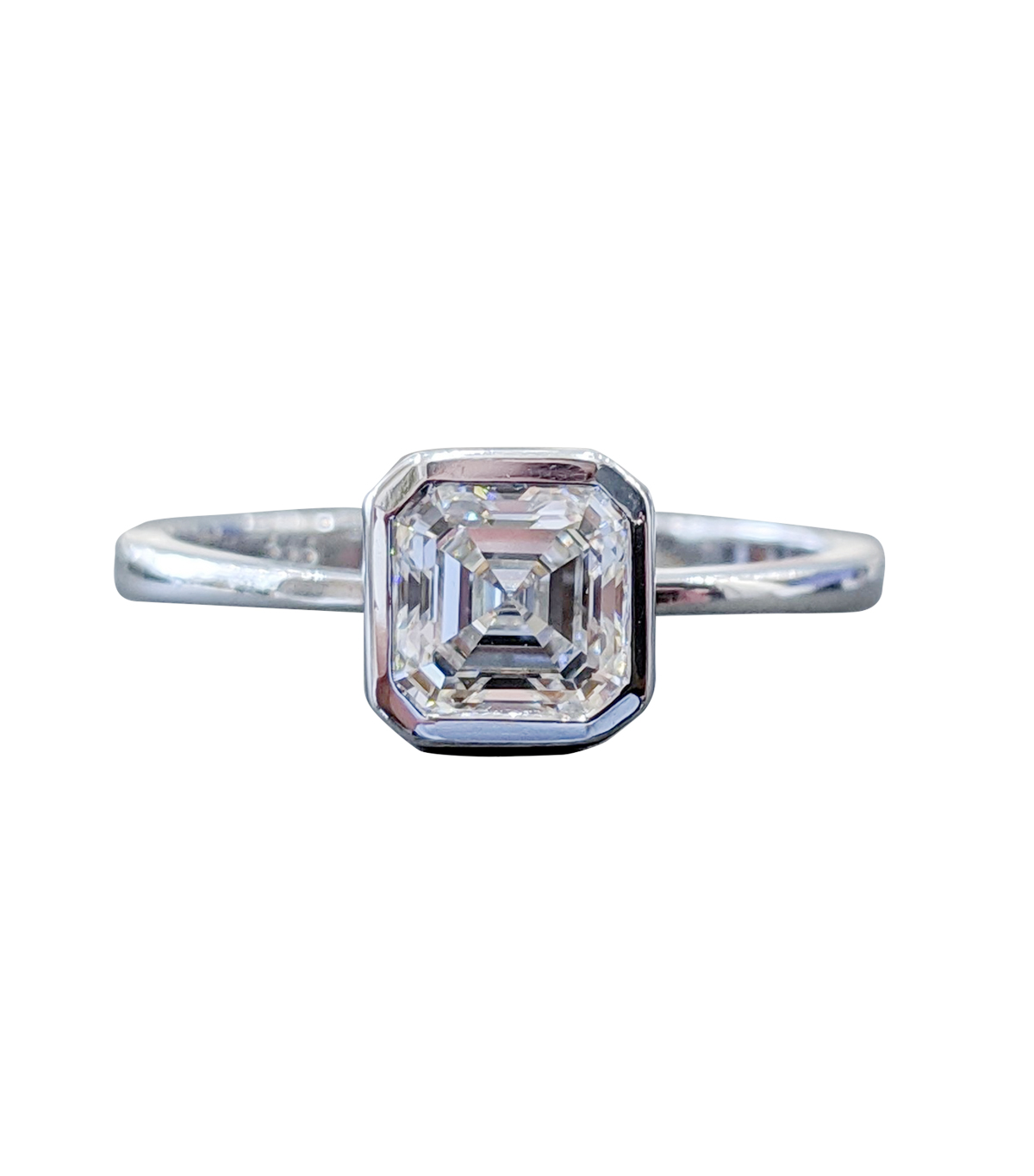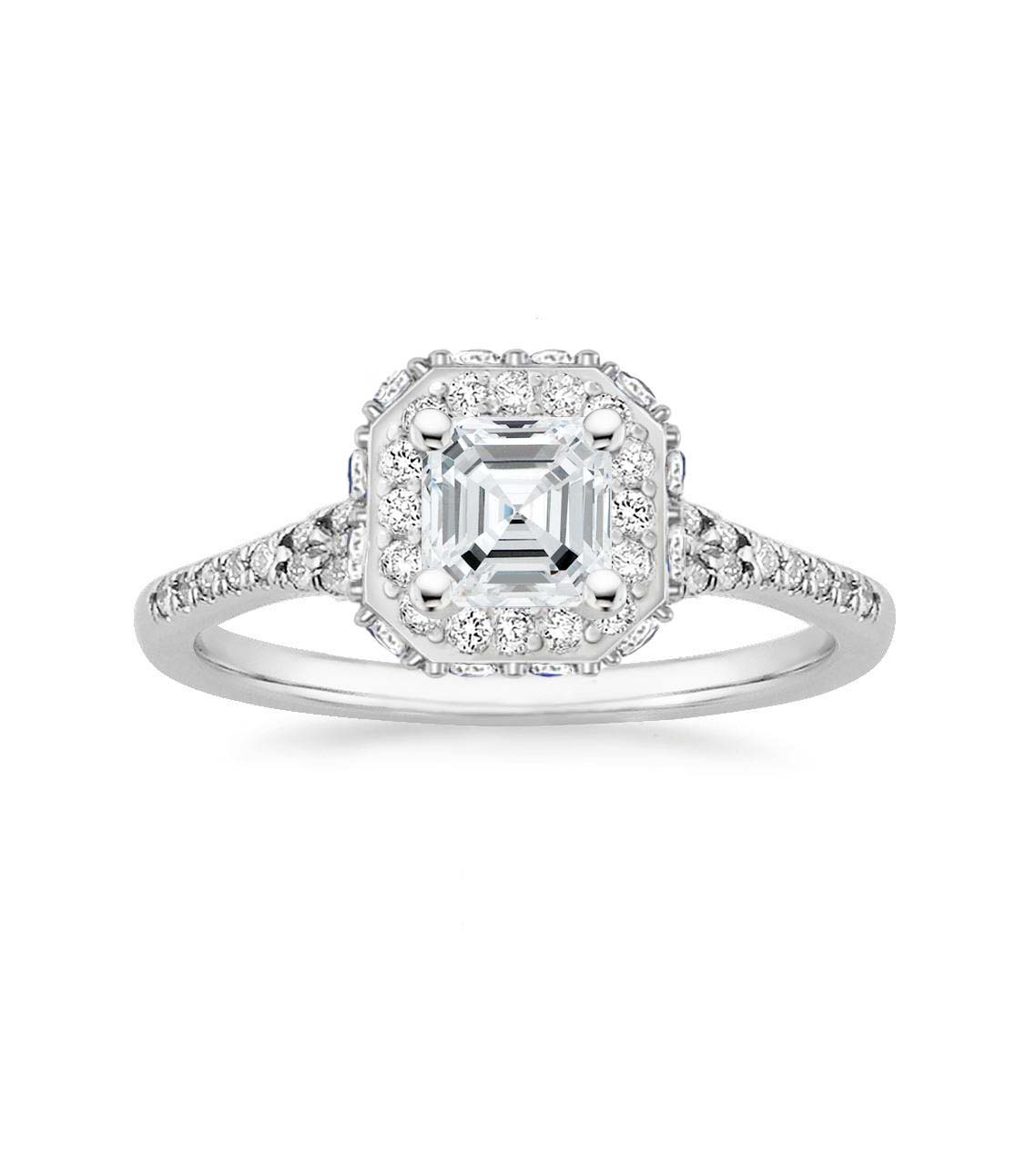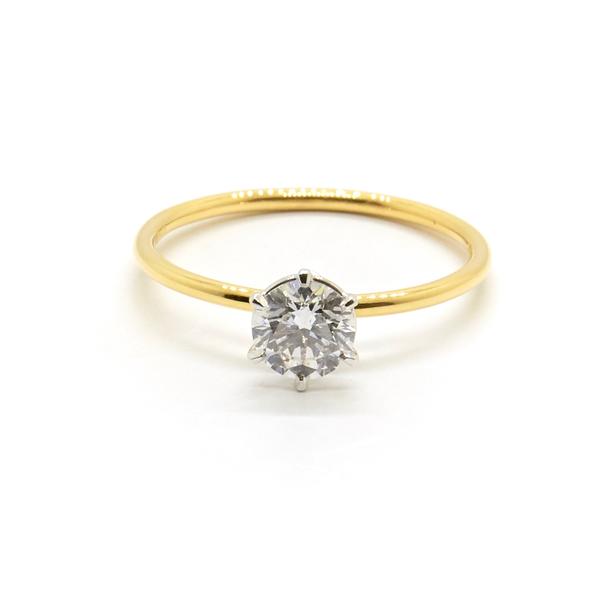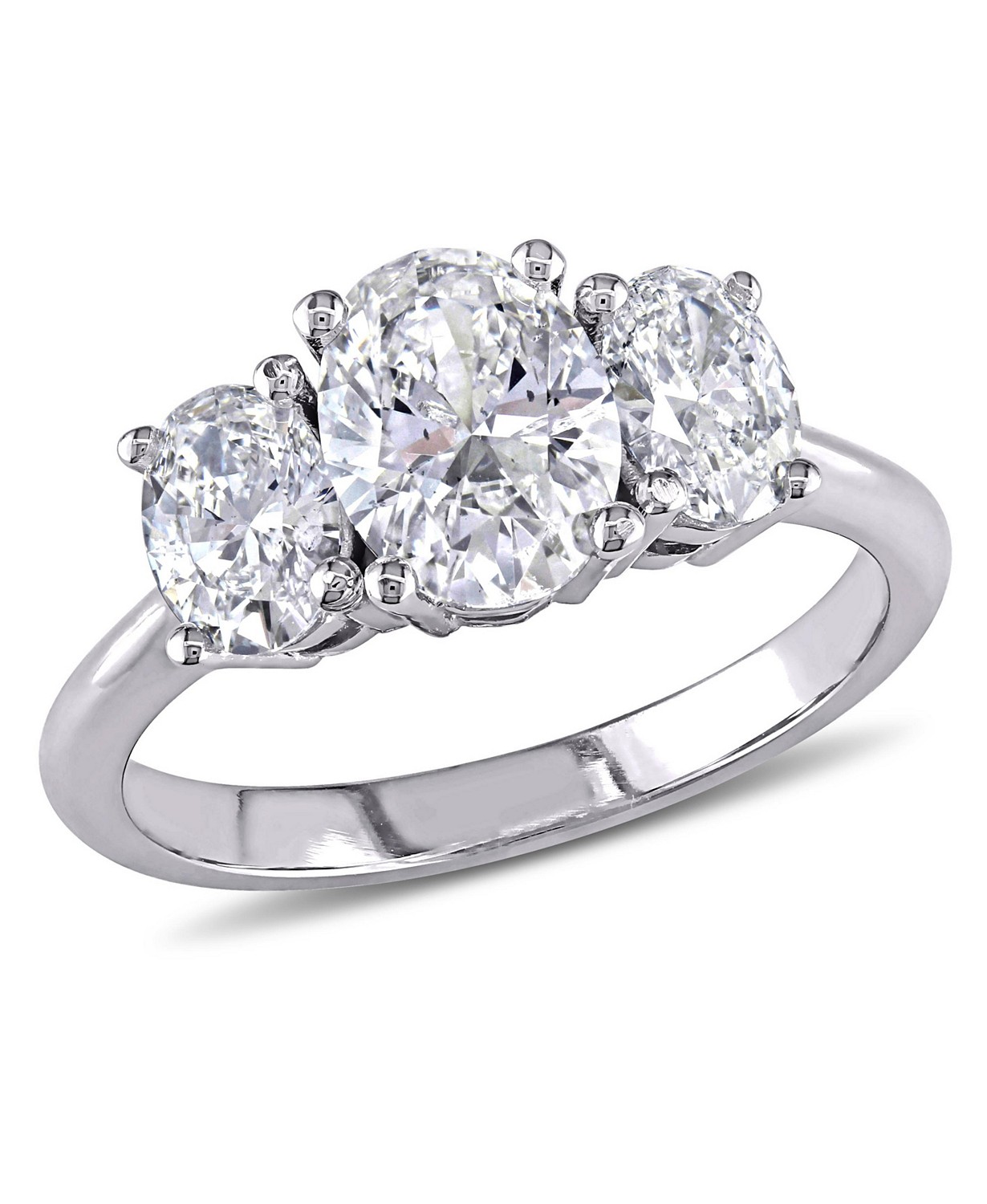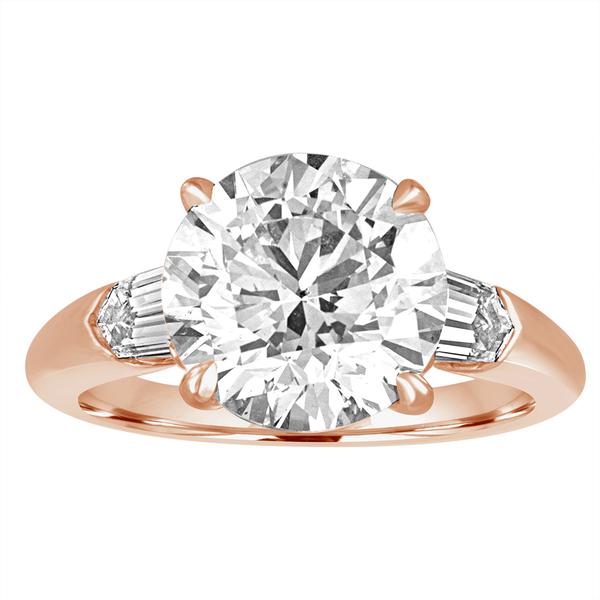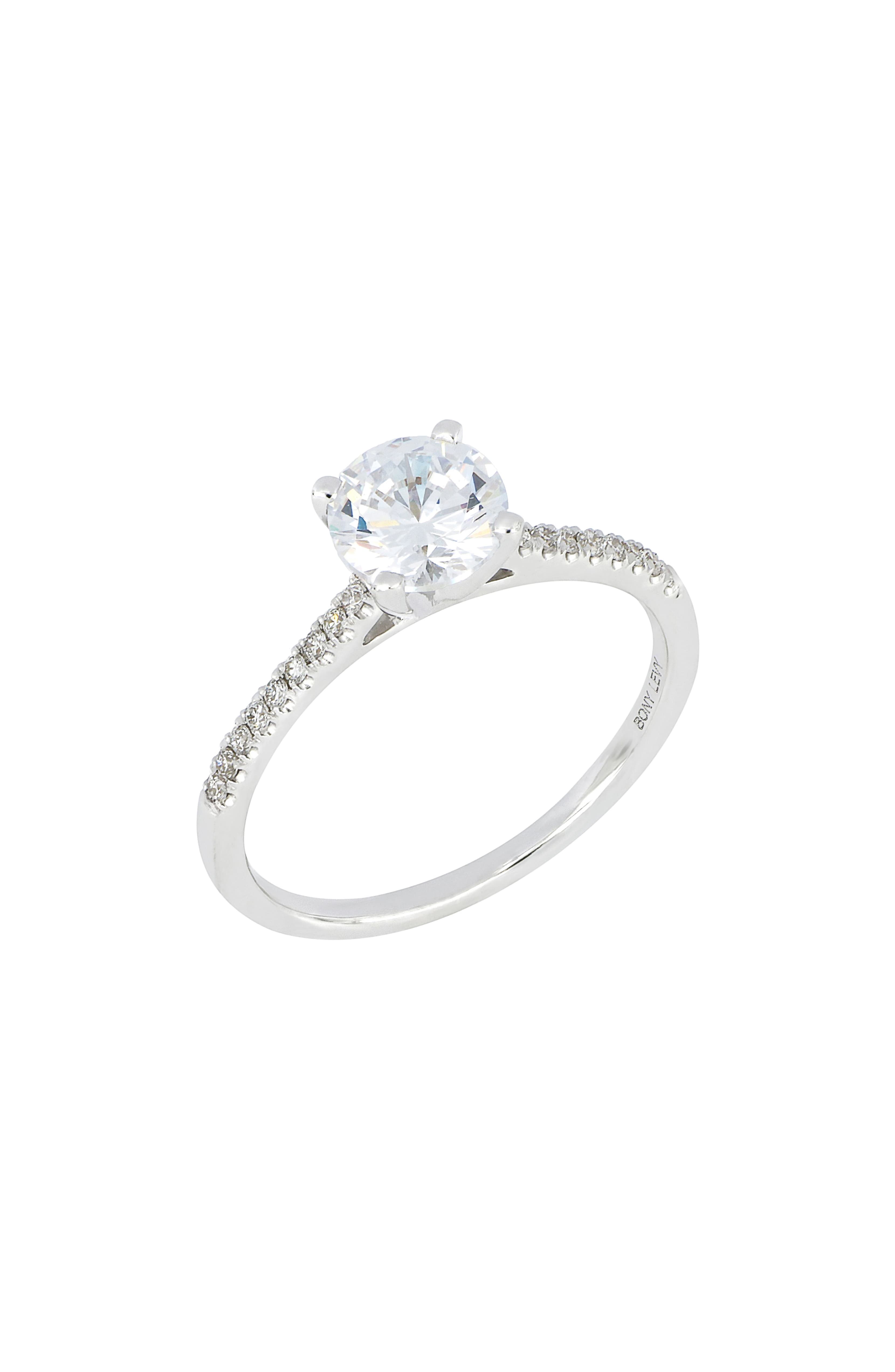3 Experts Told Me How to Get a Diamond Ring That Looks Bigger and Costs Less
Diamonds are getting rarer, which makes it all the more important to make an informed choice when selecting the right stone for you. According to a 2019 report put out by the Diamond Producers Association called Total Clarity, the number of recovered diamonds peaked in 2005 and will decrease significantly over the next decade. Because most of the diamonds mined today come from rocks discovered decades ago, the supply will dwindle over time.
To put the volume in perspective, here’s a fun fact for you: The number of one-carat diamonds recovered in a year would fill one exercise ball (the bouncy kind you can sit on). The scarcity is kind of mindblowing, which just underscores how if you’re making that kind of special investment, you want to be as smart as possible about it. For a lot of people that translates to getting the most "bang for your buck,” so to speak.
Accordingly, we reached out to three diamond experts for their takes on how to make a diamond look bigger, where you can cut corners for savings, and where you shouldn’t compromise. Ahead, a master class in getting the most for your money when diamond shopping.
Tip 1: Look for cuts that create the illusion of looking larger.
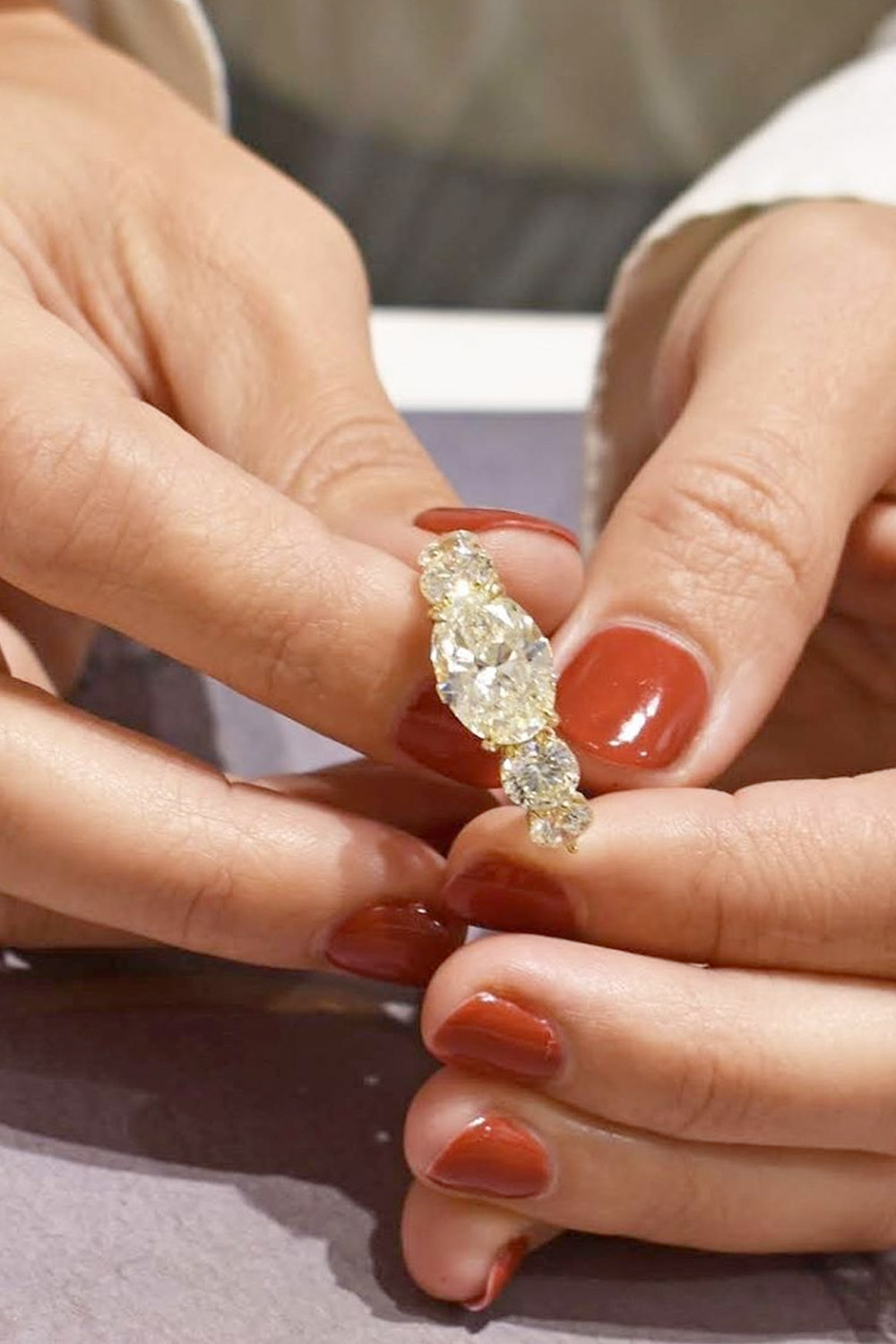
"Elongated diamond cuts tend to appear larger compared to round or square cuts," Grant Mobley, Trade Lead at the Diamond Producers Association, tells Who What Wear. "For instance, oval shapes seem larger than the average stone because they portray an optical illusion of elongating size, similar to wearing vertical vs. horizontal stripes."
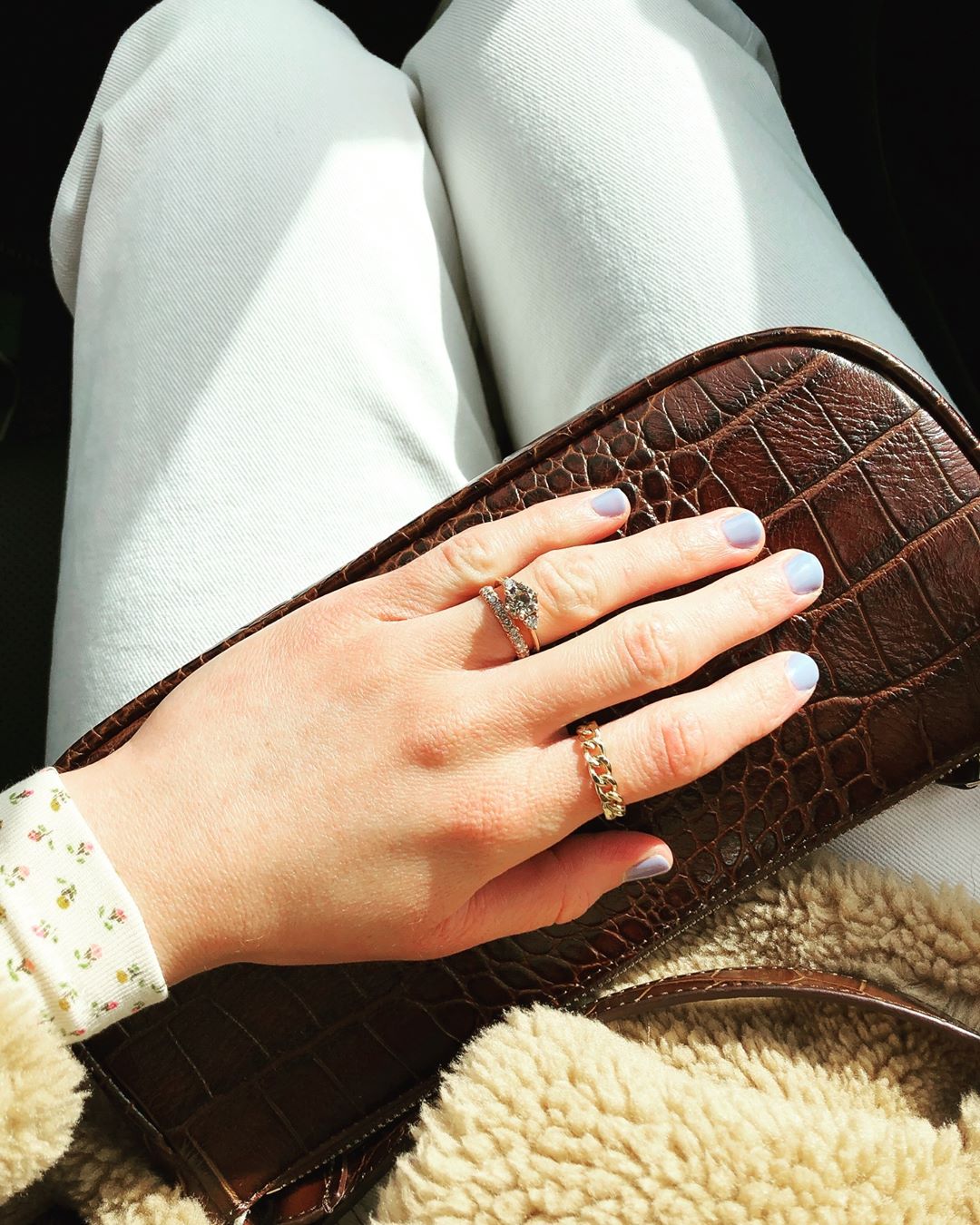
Another silhouette to consider is Marquise. "It gives you greater length in the stone, which will result in a much bigger looking diamond," David Bader, President of Bader and Garrin Diamond Company says. "Both the pear and Marquise are great cuts when you're looking to gain bang for your buck," Stephanie Gottlieb, GIA Diamond Certified private jeweler, adds. "Both shapes have a nice long 'spread', meaning they will have ample finger coverage and appear larger than other shapes of the same carat weight."
The Pear
Tip 2: Consider cuts that are less in demand and hence cheaper.
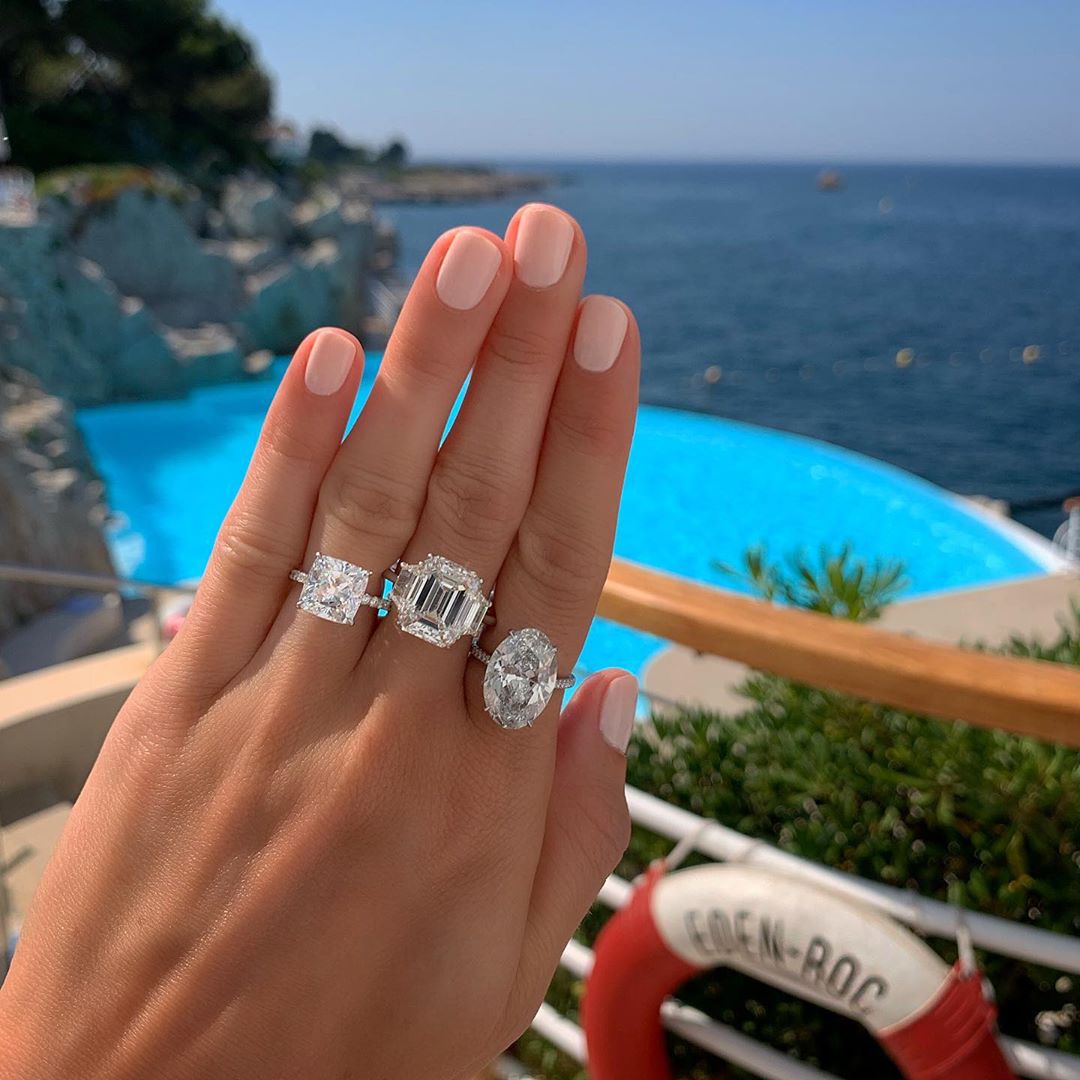
Just like anything else in the market, supply and demand impact the price of diamonds. "If someone is looking for more bang for their buck, there are definitely certain shapes that are more heavily discounted," Bader notes. "The Square Emerald Cut (otherwise known as Asscher cut) isn't as popular as it once was and trade at a higher discount."
Tip 3: Find an “eye clean” slightly included stone.
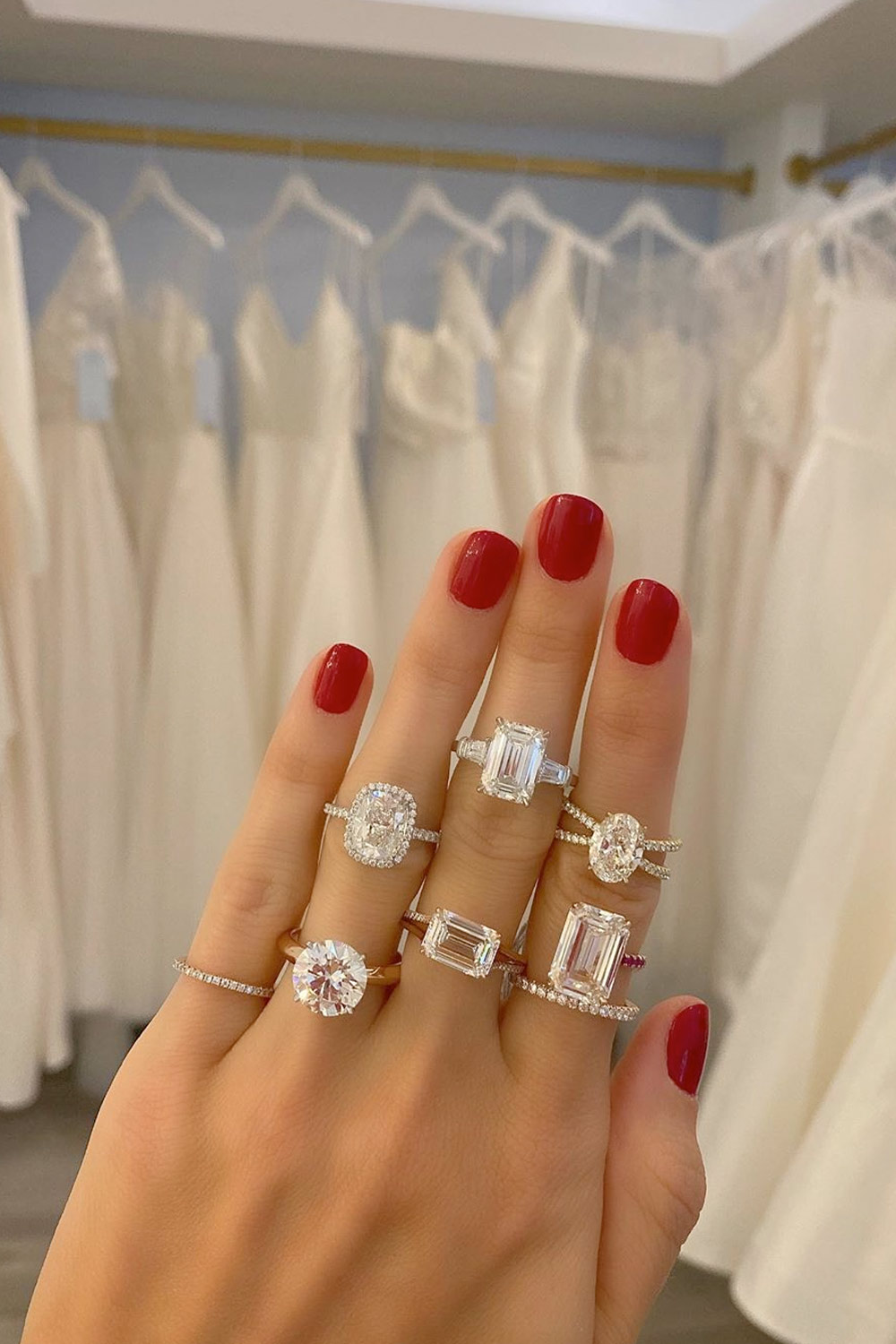
Anyone who knows the Four C's of buying a diamond (cut, clarity, carat, color) understands how much clarity can up the cost of your diamond. "Consumers can save a lot of money by focusing less on the extreme clarity and color grade of the diamond, which highly affects the price of the stone," Mobley suggests. "Each natural diamond has its own set of unique characteristics outside of the grading reports, so buyers should strive to view and hold the actual diamond in-store and choose the diamond they fall in love with. Most people won’t be able to tell the quality or color grade differences of a diamond without magnification, anyways.”
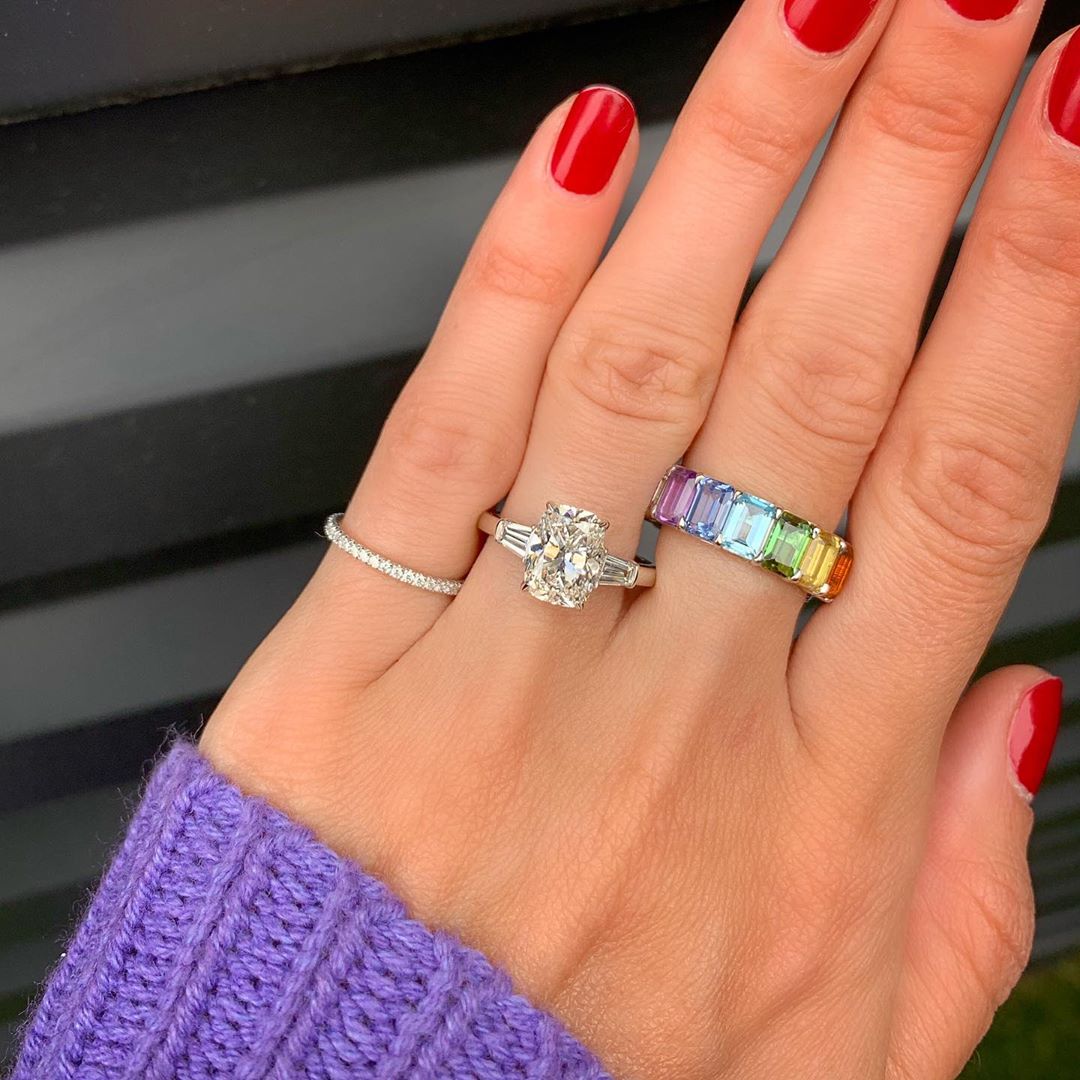
Bader agrees: "To try and stretch one's dollar to get the most possible, you could search for an SI (slightly included) in clarity as opposed to a VS ( very slightly included) clarity."
Tip 4: Make sure you get a diamond that holds value.
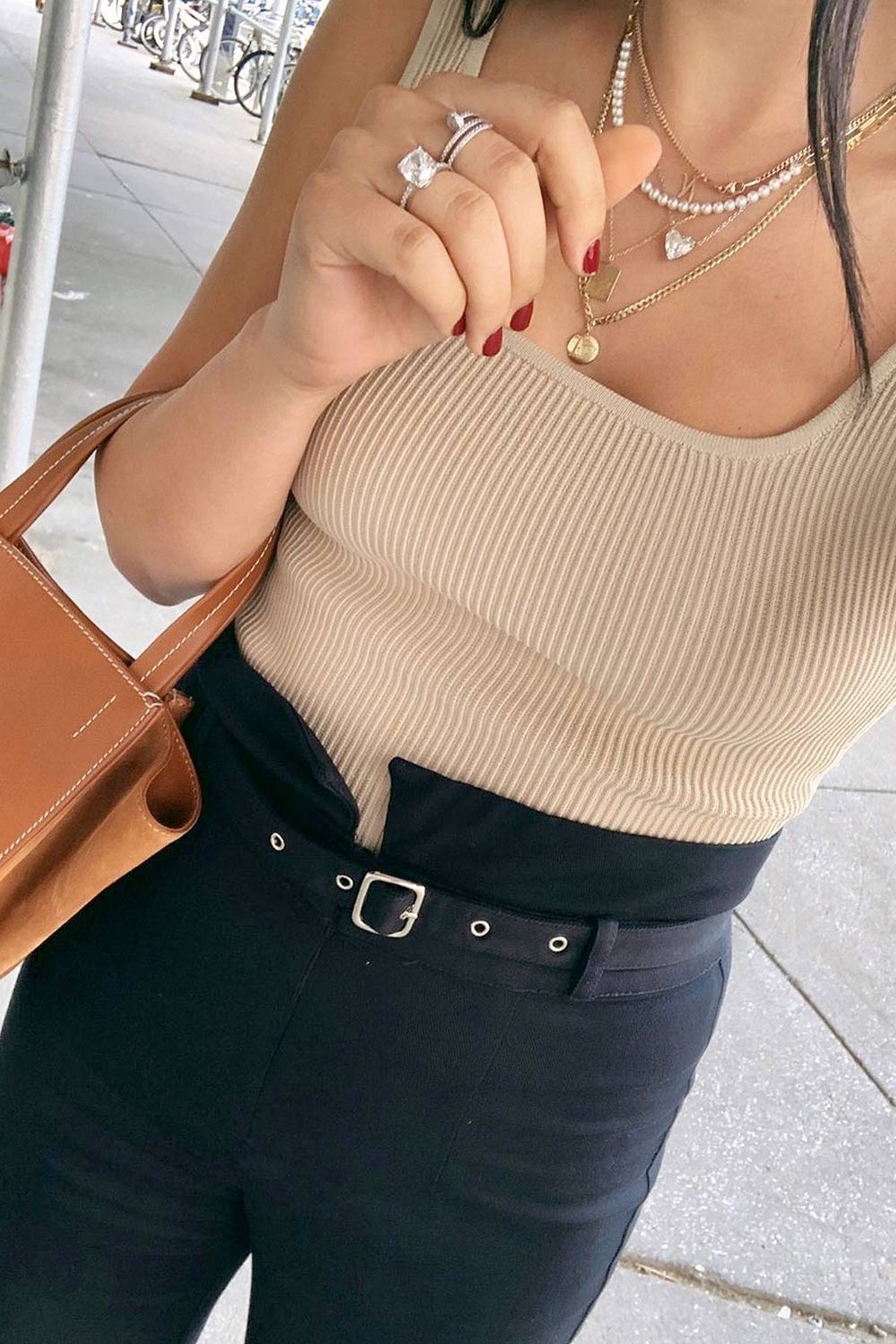
If you're investing in a diamond you likely want to choose one that feels special, rare, and valuable. "The best suggestion I can give for someone who wants to purchase a diamond that will hold value is to opt for a colorless natural diamond (d,e, f) and VS in clarity," Bader says.
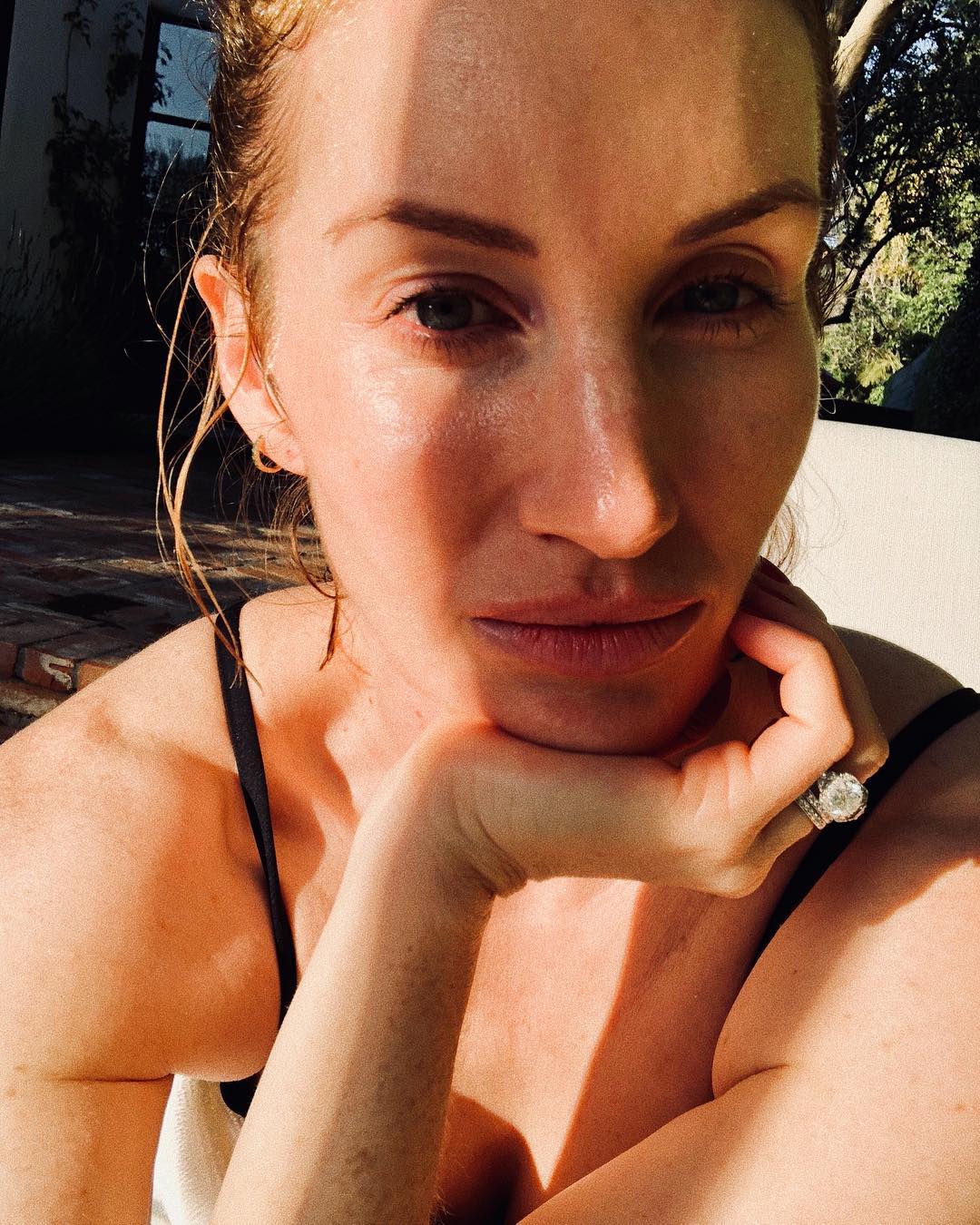
Another consideration is the shape of your diamond. "Natural diamonds in more common and traditional shapes, such as round brilliants, definitely retain their value over time, versus some of the more 'funky' shapes where prices will fluctuate more based on customer demand and trends," Gottlieb advises.
And Now: Here's everything you'd ever need to know about diamond rings, in one place.
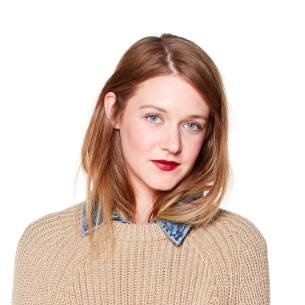
Nicole Kliest is a freelance writer and editor based in New York City who focuses on fashion, travel, food, wine, and pretty much anything else that's amusing to write about. After graduating from Pepperdine University with a bachelor's in journalism and creative writing, she started her career back in 2010 as Who What Wear's photo editor and throughout the last decade has contributed to publications including Fashionista, Harper's Bazaar, Elle, The Zoe Report, PopSugar, Fodor's Travel, and several others. She also copywrites and has worked with clients such as Frame, Sea, 3x1, Intelligentsia, and others to develop brand voices through storytelling and creative marketing. She's very passionate about the ways we can improve our sustainability efforts in the fashion industry as well as cultivating content that's diverse and inclusive of all people. When she's not checking out the latest restaurant opening in her West Village neighborhood or riding her bicycle along the West Side Highway, she can be found scheming her next trip somewhere around the world. (Up next is Vienna.)
